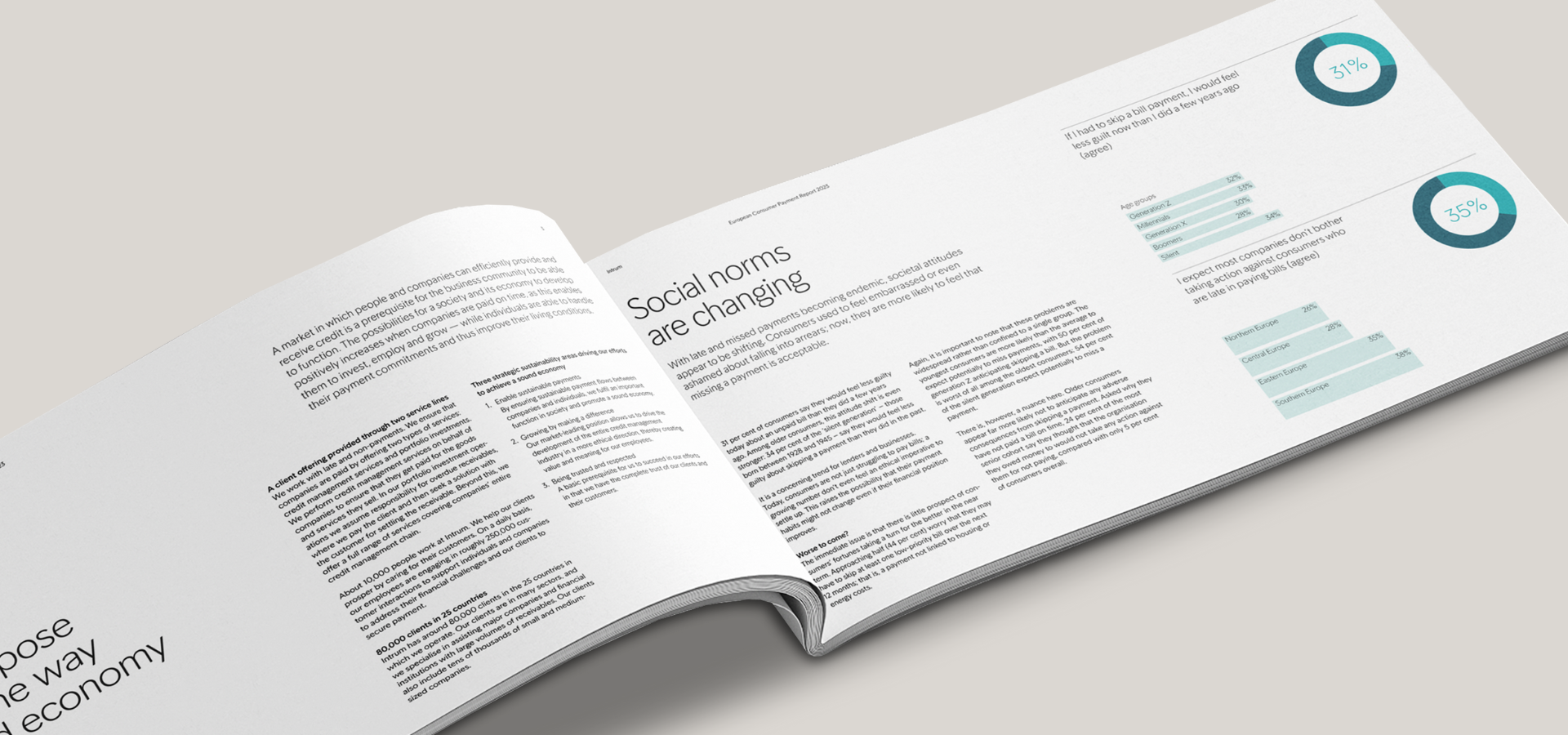The cost of living crisis – are consumers losing hope?
As consumers struggle to control their finances in a high inflation and interest rate environment, evidence suggests attitudes to late payment are shifting.
The economic situation for consumers is extremely challenging, with many forced to skip payments and pessimistic about their financial future, according to findings from the annual European Consumer Payment Report (ECPR).
The annual survey of 20,000 European consumers across 20 countries paints a bleak picture. As real earnings stagnate or decline in the face of surging inflation and higher borrowing costs, cutting day-to-day expenses and switching to budget retailers can only go so far. Years into economic crises driven by the Covid-19 pandemic and war in Ukraine, there appears to be little light at the end of the tunnel.

Inflation pains
Almost everything has become more expensive. The European Commission expects inflation in the eurozone to average 5.6% over 2023, but prices have been rising at a much faster pace than that. Inflation is expected to have peaked at 8.6% in the euro area and 10.0% across the wider EU. The UK has seen even higher rates. In response, central banks have raised interest rates, increasing the cost of borrowing and adding further pressure on consumers.
There isn't as much money as we would like to do the things that we want to do. So we are comfortably managing to pay off all of our priority bills and the necessaries, and we can afford to do things that we like, but sometimes there isn't as much due to high cost of everything.Statement from surveyed consumer
Wages fail to keep pace
Although consumers have sought higher pay as a result of the difficulties they are facing, wages have not kept pace with inflation. Half of those surveyed report that they have less disposable income than they did this time last year. In real terms, consumers are losing ground.
The findings in Intrum’s survey suggest this is having a dramatic impact. While around half of those surveyed (53%) say they are breaking even each month, 24% are spending more than they have. The average overspend is €232 a month, adding up to €2,784 a year, which could rapidly lead to serious problems for consumers and a rise in the number of non-performing loans.
With previous forbearance initiatives running out, many consumers have also worked through their savings buffers. A fifth (20%) say they have no savings, while a further 17% have less than one month’s income left.
Fixed-rate mortgage crisis looms
Meanwhile, beleaguered consumers are also staring down the barrel of fixed-rate mortgage pain.
In much of Europe, a significant proportion of homeowners are on fixed-rate mortgages that last several years. When their deals expire they’ll be forced onto higher rates, further squeezing their finances. In the UK alone, 4.4 million borrowers will be leaving their fixed-rate deals in 2024. The cost of a new fixed-rate deal is likely to be several percentage points higher.
The effects are already seen in Northen Europe.
A significant proportion of consumers in the Scandinavian regions having floating mortgage rates as opposed to fixed rates. Additionally, the northern countries exhibit a pronounced debt-to-income ratio, signifying substantial amounts of loans and mortgages. The prevalence of floating rates exposes these consumers to the rapid effects of monetary policies on their disposable income, which is seen in the data from ECPR 2023: 46% has missed paying a bill on time the past year, up from 26% in 2022.
Consumer sentiment takes a turn
Given these factors, it is unsurprising that consumer sentiment has taken a darker turn. According to Intrum’s survey, two-thirds (66%) don’t believe they will ever be wealthy – no matter how much time and effort they put into working hard and saving more.
This sense that things are stacked against them is exacerbated by the worries many consumers about advances in technology, such as generative AI, taking away their income.
A knock-on effect of today’s financial challenges and this lack of hope is that attitudes to payment are shifting. More than a third (35%) of consumers admit to having not paid a bill on time in the last 12 months, with 42% stating this is a regular occurrence.
For more information on consumer trends and payment behaviour, download the full European Consumer Payment Report, published November 2023.



